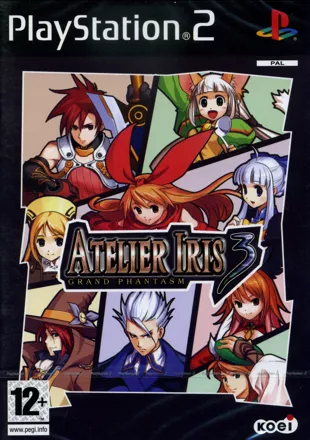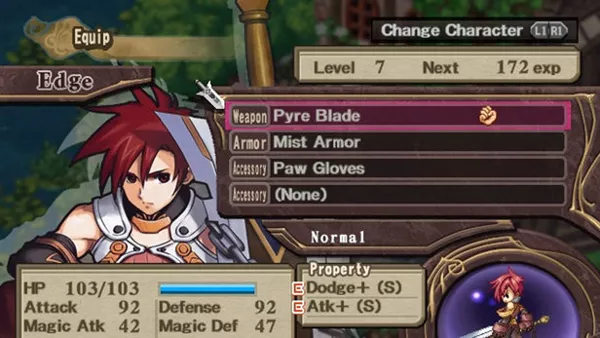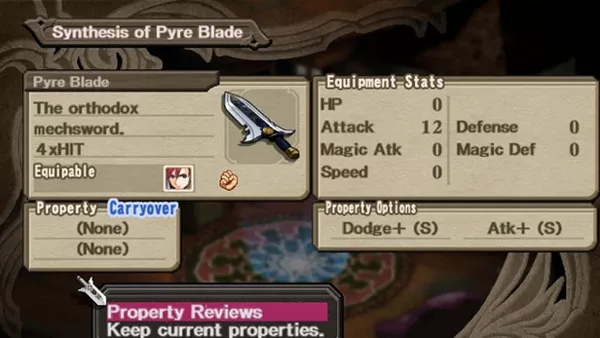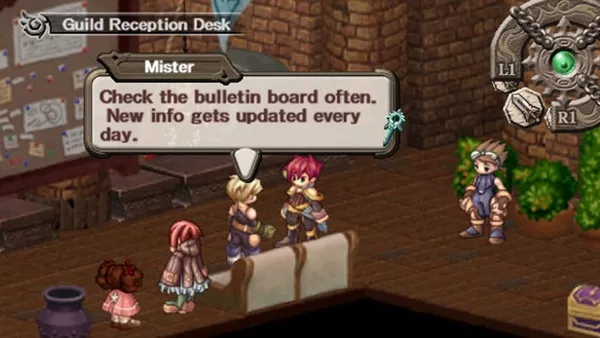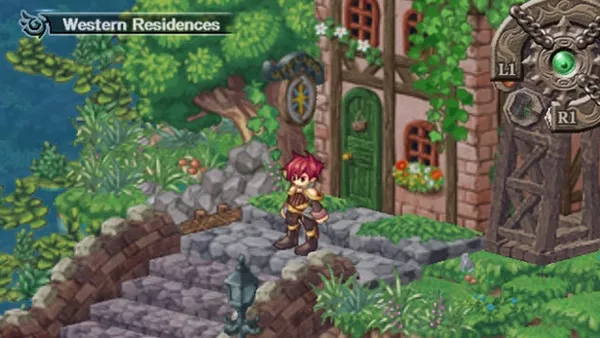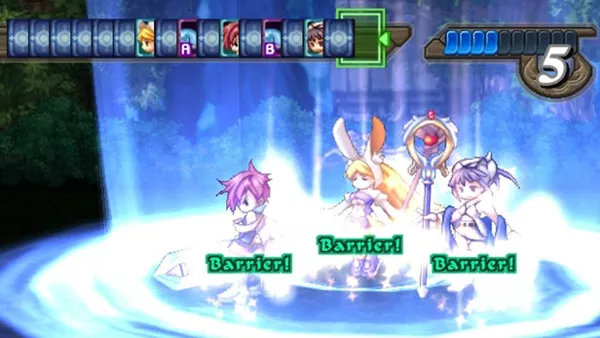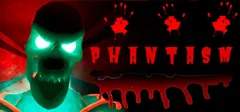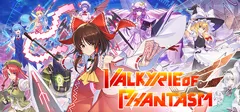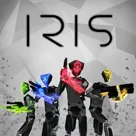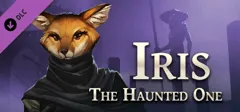Atelier Iris 3: Grand Phantasm
Description official descriptions
Atelier Iris 3: Grand Phantasm is a traditional Japanese old-fashioned RPG with a classic turn-based battle system and 2D anime style characters.
The main feature in Atelier Iris 3 is alchemy, just as in previous games in the series. This means players will able to collect all kind of ingredients throughout their quest and make items with the help of their alchemy skills.
Players will take control of three protagonists in Atelier Iris 3:* Edge Vanhite - a 19 year old raider and alchemist, who's job is to explore the Alterworlds.
-
Iris Fortner - a 16 year old girl who is Edge's childhood friend and still a novice raider.
-
Nell Ellis - a 15 year old girl, who is an energetic young novice raider from a noble family.
The game's graphics is a mix of 2D images/objects and 3D backgrounds with Gust's usual 2D anime characters. The game also has several anime cut-scene including an introduction video. The game's music and sound was made by Ken Nakagawa known from the earlier Atelier games. The battle system is quite similar to the older Atelier games with (a little bit) improved traditional turn-based combat.
Some of the news to this third Iris game: An all new alchemy level system. Players can practice alchemy to improve their skills and create new items. The Active Cost Card Battle System which shows your exact order in the battle and brings more strategy to the fights. Using the new Enemy Symbol Encounter System, players can know see their enemies on the map, which helps them to plan. Players can also accept mission from an guild and improving their rating by doing so.
Groups +
Promos
Credits (PlayStation 2 version)
144 People (140 developers, 4 thanks) · View all
| Edge | |
| Iris | |
| Nell | |
| Ewan | |
| Ash | |
| Crowley | |
| Alvero | |
| Yula | |
| Noella | |
| Anna | |
| Phenyl | |
| Localization Producers | |
| Localization Directors | |
| Programming | |
| Localization Support | |
| Translation | |
| Script Editorial | |
| Voice Director | |
| Voice Engineer | |
| Recorded at |
|
| Production Director | |
| Package Design | |
| Manual Design | |
| [ full credits ] | |
Reviews
Critics
Average score: 61% (based on 35 ratings)
Players
Average score: 3.7 out of 5 (based on 5 ratings with 1 reviews)
Nice addition to an amazing trilogy
The Good
Atelier Iris 3 - Grand Phantasm is the 3rd and last game of the Atelier Iris series on PlayStation 2. The series are Japanese-RPG games which an heavy focus on Alchemy, and outside of their philosophy and art-style the 3 games are unconnected. Their gameplay systems are entirely separate. I must add that I enjoyed both prequels very much so my expectations for this game were high.
This games function quite different than from both most JRPGs and the first two Atelier Iris games. The game revolves around a young boy and a young girl which are rangers and are basically working for other people to do mini-quests. The game takes place only a single city which is somewhat inspired Venice as waterways boat travel is common. However all the fighting and most of the quests will take place in so called "Alterworlds", which are places which are like small parallel worlds. Alterworlds are the equivalent to dungeons in more traditional JRPGs. Since each alterworld is quite large, there is a lot of things to explore there, treasure to be found, and people to talk to, so even if there is no mission in process there's still things to do.
The time spent in Alterworlds is limited. This adds to the challenge, because how much of them can be explored at a time is limited. When you are particularly good at defeating enemies quickly, the time will freeze. On the other hands, if you need to flee from battle, there is a major time penalty.
The battle system is quite original. Characters are represented by playing cards in the upper left corner, and when the card reaches the right end of the deck the playable character or the enemy takes a turn. As usual, physical attack, techs/magic and items can be used. When attacking, the number of hits depends on the equipment (not only the weapon), and can greatly change how powerful a character is. When using strong magic/techs, the card goes further left, so it takes more time to recover from it. Unlike in most other jRPGs, the concept of Mana limiting how much magic you can cast is nonexistent, which is nice. Instead, you have to first use physical attacks to fill up a gauge, and when the level of the gauge is high enough, you can unleash strong attacks. The gauge also refills when walking in alterwords, so it's possible to start a battle with strong techs/magic sometimes.
There is also a so-called "burst gauge" which fills up when landing successful attacks, and empties when taking hits. If the gauge becomes full, you can enter in "burst mode", in which the skill gauge starts full and allows you to deal more damage than usual. Most battles will revolves around the strategy of entering in burst mode as soon as possible for dealing maximum damage to defeat the enemy quickly. Only really weak enemies can be defeated without burst mode. Of of the three playable characters can also summon manas, which is always nice. The other two characters instead will use Mana's soul to have new weapons and abilities, or in other words "change their job".
The graphics are similar to the graphics of the first 2 games, and are of excellent top-notch quality. Entirely in isometric point of view outside of battle, and in side view in battle, just like the previous Atelier Iris games. Nothing much to say here.
Music is, unsurprisingly, of spectacular quality. It is just as good as it was in the first 2 games, which mean, incredible. It doesn't sound like video game music but something else much better. Just like in the precedent games it mixes pop music with traditional Japanese instruments, but now it also brings some new-age in the mix. The only bad thing is that since there's few different places to explore in the game there's also few different pieces of music to hear, fewer than in it's two predecessors.
Like the first two games, but unlike the vast majority of Japanese-RPGs, this game is heavily item based, and you'll be spending as much time looking for new items and combining them with alchemy to make new items, rather than fighting enemies. Many quests requires you to create new items, as well. It's a nice refreshment from games which only requires you to fight all the time.
The Bad
Even though the game is very good and enjoyable, I still have my fair share of complains. The worst is that the game is overall quite unbalanced. One of the 3 playable characters is too powerful, and only one of them can heal a significant amount of HP at the end of the game when fusing with a particular mana, which means other fusions are nearly unusable, as it means the healing power of the party as a whole is insufficient. Burst mode is triggered only when you're winning, and is pretty much required to win. So basically the battle system is going to accentuate whether you're winning or loosing. By the way the challenge is quite moderate, at least in battle, and only rarely you'll be loosing. Even when doing so, most of the time progress is still kept, as the effect is the same as running out of time in an alterworld. Only loosing to major bosses leads to a Game Over.
While the ranger system is nice and provides hundreds of various quests to do, there is too little to explore. Only one town and half-a-dozen alterwords feels very small compared to what there was to explore in the previous two Atelier Iris games, even though alterworlds are bigger than traditional dungeons. The among of backtracking becomes boring towards the end of the game.
Having only 3 playable characters seems very limiting compared to the other games which had more like 7 or 8 each, and very lovable ones instead. The 3 main characters of this game are unfortunately quite boring and generic. Manas used to have their personality too in the first game of the series, and to a lesser extent the second. Here they are just sprites and have no personalities whatsoever, so you don't feel anything when fusing with them or summoning them.
The storyline is basically non-existant in this game. It couldn't be any more generic, you're saving the world from evil dude you don't know anything about. At least the random people in the towns of Meruze have some character, so at least there is interesting characters in the game, but ironically they're the non-playable ones.
I can't really point anything really, but this whole games has an unfinished touch to it, you can feel the developers wanted to make it better and bigger but couldn't.
The Bottom Line
I had very high expectations for Atelier Iris 3, and for the most part, they're met. The target audience is people who like Japanese RPGs with anime-style characters and 2D graphics, and people within this audience will almost certainly love playing this. But I have to admit that this game stays behind it's two predecessor, it's just smaller and less fun to play, with less things to discover. It is nevertheless a very enjoyable game of great quality. If you're a newcommer to the series I'd actually recommend to start with this game so that the other two will blow you away even more.
PlayStation 2 · by Bregalad (937) · 2018
Analytics
Upgrade to MobyPro to view research rankings!
Identifiers +
Contribute
Are you familiar with this game? Help document and preserve this entry in video game history! If your contribution is approved, you will earn points and be credited as a contributor.
Contributors to this Entry
Game added by Szabolcs Dudas.
Game added September 29, 2008. Last modified March 9, 2023.
